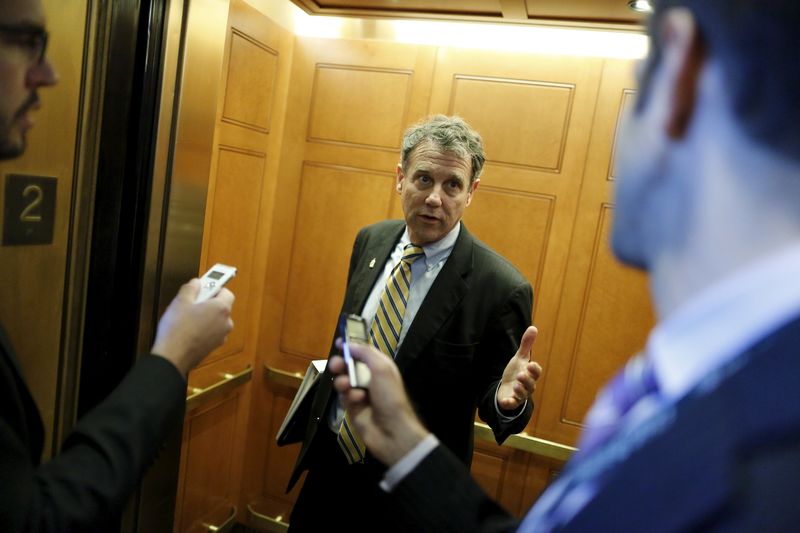Why the U.S. dollar still reigns supreme
By Michael Flaherty
WASHINGTON (Reuters) - Democrats on the Senate Banking Committee on Tuesday released their own version of a regulation relief bill, keeping the proposed changes focused on small banks and forcing the panel's Republican chairman to try and hash out a deal in coming months.
The Democrats' bill is a rebuke to Richard Shelby of Alabama, the committee chair who officially released his wide-ranging legislation on Monday after circulating a 216-page draft version last week.
Shelby unveiled his bill after talks with the top Democrat on the committee, Sherrod Brown, failed to produce a bipartisan agreement. The Ohio Democrat had insisted the legislation apply only to small banks and credit unions, fearing a broader bill would roll back financial industry reforms put in place by the 2010 Dodd-Frank Act.
Brown's release of a 17-page alternative proposal signed by all 10 Democrats on the committee adds to the steep challenge Shelby faces in getting enough support to send his bill to the Senate floor and get the 60 votes needed to pass it.
The committee is scheduled to vote on the Shelby bill on Thursday.
"This is why the Thursday voting will be the start of the negotiations rather than the end," Guggenheim Securities analyst Jaret Seiberg said in a research note. Rather than hashing out a compromise in public during the mark up, Seiberg said Guggenheim believes Shelby will use the rest of the summer to try and get three Democrats on board.
On Thursday, Seiberg said he expects a partisan vote of 12-10 for the Shelby bill.
Among the more controversial proposals in the Shelby bill is increasing the threshold used to determine whether a bank is systemically important from $50 billion in assets to $500 billion. That higher threshold would impact banks such Bank of New York Mellon (NYSE:BK) Corp., PNC, and State Street Corp (NYSE:STT)..
Another is loosening federal mortgage restrictions for all banks that agree to hold the loans on their books, outlined in the bill as a safe harbor for so-called qualified mortgages. The Shelby bill also proposes changes to financial regulators, including the Federal Reserve.
The Democrats' bill offers a similar safe harbor for qualified mortgages, though only for banks that have less than $10 billion in assets. It also contains small bank relief measures similar to those proposed by Shelby, and enables the Consumer Financial Protection Bureau to enforce legislation meant to help members of the U.S. armed services.
